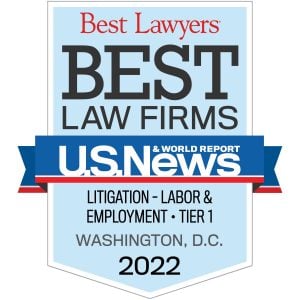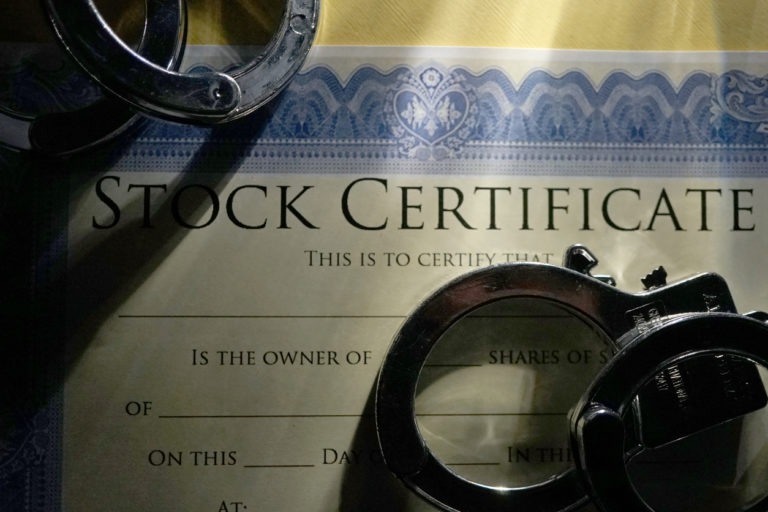SEC Targets Unregistered Convertible Debt Lenders and Penny Stock Dealers
The U.S. Securities and Exchange Commission (SEC) is targeting convertible debt lenders and penny stock dealers that are operating as unregistered securities dealers. Under the federal securities laws, a convertible debt lender must register as a securities dealer when they engage in the regular business of buying and selling securities for their own account, through a broker or otherwise. See Section 3(a)(5)(A) of the Securities Exchange Act of 1934 (Exchange Act). In these circumstances, a convertible debt lender’s failure to register as a securities dealer with the SEC is a violation of the mandatory registration provisions of the federal securities laws. See Section 15(a)(1) of the Exchange Act. By failing to register, a convertible debt lender avoids regulatory obligations governing dealers, including regulatory inspections and oversight, financial responsibility requirements, and maintaining books and records.
On February 26, 2020, the SEC brought its first-ever enforcement action against a convertible debt lender for failing to register as a securities dealer. According to the SEC’s complaint, the convertible debt lender engaged in the business of purchasing convertible notes—a type of security—from penny stock issuers, converting the notes into newly issued shares of stock, and selling those shares into the public market at a significant profit. Since the enforcement action, and as detailed below, the SEC has brought two additional enforcement actions against unregistered convertible debt lenders. In total, the SEC alleges the defendants in the three enforcement actions generated nearly $85 million in profits.
The SEC Whistleblower Program was created to incentivize whistleblowers with information about federal securities laws violations (e.g., unregistered convertible debt lenders) to report to the SEC. If represented by counsel, a whistleblower may submit a tip anonymously to the SEC.
Since the inception of the program in 2011, the SEC has received more than 33,300 whistleblower tips, some of which have enabled the SEC to recover nearly $4 billion in financial remedies from wrongdoers. In exchange for these valuable tips, the SEC’s Office of the Whistleblower has paid nearly $1 billion in awards to whistleblowers to date. The largest SEC whistleblower awards to date are $114 million and $50 million.
If you have original information that you would like to report to the SEC Whistleblower Office, contact the Director of our SEC whistleblower practice at [email protected] or call our leading SEC whistleblower lawyers at (202) 930-5901 or (202) 262-8959. All inquiries are confidential.






SEC Whistleblower Program
Under the SEC Whistleblower Program, the SEC will issue awards to whistleblowers who provide original information, including information about unregistered convertible note lenders, that leads to successful enforcement actions with total monetary sanctions in excess of $1 million. A whistleblower may receive an award of between 10% and 30% of the total monetary sanctions collected. In its short history, the SEC Whistleblower Program has had a tremendous impact on securities enforcement.
SEC Enforcement Actions Against Unregistered Convertible Debt Lenders and Penny Stock Dealers
- On February 26, 2020, the SEC charged John D. Fierro and his company, JDF Capital, Inc., with failing to register as dealers with the SEC. See Securities and Exchange Commission v. John D. Fierro and JDF Capital, Inc., No. 3:20-cv-2104 (D.N.J. February 26, 2020). According to the SEC’s complaint, Fierro and JDF purchased convertible notes from more than 20 separate issuers and sold more than 6.5 billion shares of newly issued penny stock into the market, generating over $2.3 million in profits. At the time of this conduct, the SEC alleges that neither Fierro nor JDF were registered as securities dealers, in violation of the mandatory registration provisions of the federal securities laws.
- On March 24, 2020, the SEC filed charges against Justin W. Keener d/b/a JMJ Financial for buying and selling billions of newly issued shares of penny stock without registering as a securities dealer. See Securities and Exchange Commission v. Justin W. Keener d/b/a JMJ Financial, No. 20-cv-21254 (S.D. Fla. March 24, 2020). The SEC’s complaint alleges that for approximately three years, Keener purchased convertible notes from more than 100 separate penny stock issuers, converted the notes into newly issued shares of stock, and sold more than 17.5 billion shares of newly issued penny stock into the public market, generating over $21.5 million in profits. Keener demanded and received highly favorable terms for these notes, including deep discounts on the converted stock from the prevailing market price. The majority of Keener’s profits resulted from the discounted prices at which he acquired shares from the issuers to sell into the market.
- On September 3, 2020, the SEC brought charges against John M. Fife and companies he controls for buying and selling more than 21 billion shares of penny stock without registering as a securities dealer with the SEC. See Securities and Exchange Commission v. John M. Fife, Chicago Venture Partners, L.P., Iliad Research and Trading, L.P., St. George Investments LLC, Tonaquint, Inc., and Typenex Co-Investment, LLC, No. 1:20-cv-05227 (N.D. Ill. filed September 3, 2020). The SEC’s complaint alleges that for approximately 5 years, Fife and his companies were in the business of purchasing convertible notes from penny stock issuers, converting those notes into shares of stock, and selling the newly issued shares into the market at a profit of $61 million. And the complaint avers that the convertible notes that Fife and his companies bought from the issuers entitled them to receive issuer stock at a substantial discount from the prevailing market price. To lock in their profits, the defendants normally sold the stock as soon after conversion as the market would bear the sales.
How to Report Unregistered Convertible Debt Lenders and Penny Stock Dealers and Earn an SEC Whistleblower Award
To report an unregistered convertible debt lender or penny stock dealer and qualify for an award under the SEC Whistleblower Program, the SEC requires that whistleblowers or their attorneys report the tip online through the SEC’s Tip, Complaint or Referral Portal or mail/fax a Form TCR to the SEC Office of the Whistleblower. Prior to submitting a tip, whistleblowers should consult with an experienced whistleblower attorney and review the SEC whistleblower rules to, among other things, understand eligibility rules and consider the factors that can significantly increase or decrease the size of a future whistleblower award.
SEC Whistleblower Attorneys

For more information about the SEC Whistleblower Program and how to report violations of the federal securities laws to the SEC, download the eBook: Tips from SEC Whistleblower Attorneys to Maximize an SEC Whistleblower Award. Also, click below to hear SEC whistleblower lawyer Matt Stock’s tips for SEC whistleblowers:
How to Qualify for an SEC Whistleblower Award
- See our column in Forbes: One Billion Reasons Why The SEC Whistleblower-Reward Program Is Effective.
- See our column in Going Concern: Sarbanes-Oxley 15 Years Later: Accountants Need to Speak Up Now More Than Ever.
- See our post in Accounting Today: Whistleblower Protections and Incentives for Auditors and Accountants.
- See our post in The Compliance and Ethics Blog: Shkreli Trial Reveals the Challenges Faced by Compliance Whistleblowers.
Are Whistleblowers Protected from Retaliation?
Click here to learn more about anti-retaliation protections for SEC whistleblowers under the Dodd-Frank Act and Sarbanes-Oxley Act.




